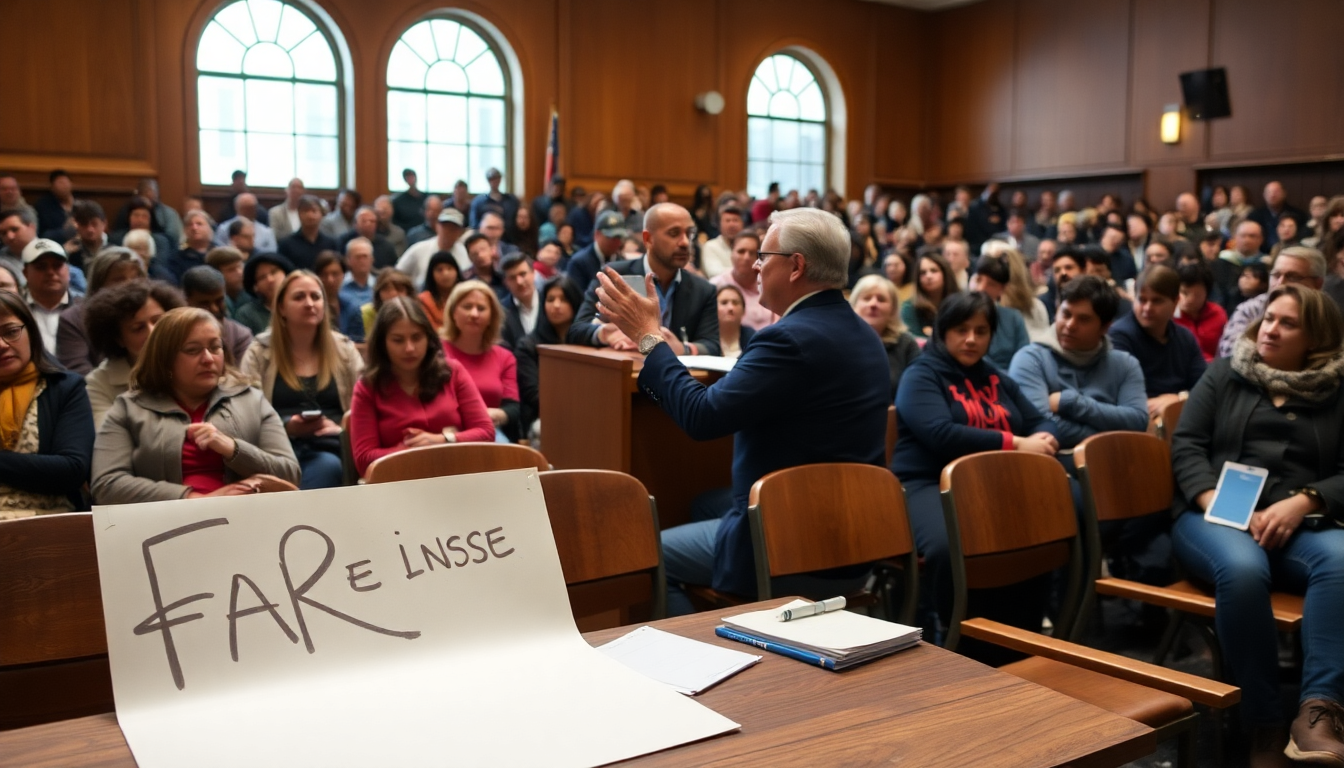Table of Contents
The recent public hearing about the Metropolitan Transportation Authority’s (MTA) proposed fare hike has laid bare the growing frustration among New Yorkers regarding the subway system. With plans to raise subway and bus fares to $3 by January 2026, many residents are feeling the pinch as the cost of living continues to rise in the city. The emotions shared during the hearing highlight a deeper dissatisfaction, not just with the fare increase, but also with the service quality itself.
Public Outcry Against Fare Hikes
At the hearing, which drew a crowd of around 100 attendees, commuters didn’t hold back their disappointment. Emmanuel Vasquez, a student at John Jay College, passionately criticized the fare hike, questioning why costs are going up for a service that’s already struggling with inefficiencies. “Your entire plan is bulls–t,” he exclaimed, spotlighting the ongoing issues with service reliability. With frequent reports of delays, power outages, and even flooding, many riders feel they’re being asked to pay more for a system that doesn’t meet their basic needs.
Another attendee, Lynette Rushmore, echoed these frustrations, pointing out the disconnect between the fare hikes and the actual conditions of the subway system. “I don’t see anything that’s been elevated in our transit system,” she lamented, emphasizing that despite rising fares, improvements remain elusive. This discontent is exacerbated by the ongoing fare evasion issue, which some argue is a symptom of deeper systemic problems.
Understanding the Context of Fare Evasion
The conversation also delved into the topic of fare evasion, which, while it has dipped slightly to 9.8% this year, continues to be a significant concern for the MTA. Commuters pointed out that, despite efforts to tackle this issue—like installing new turnstile barriers—many still opt to evade fares as a protest against the service provided. Serenjo Persaud, a lifelong resident, highlighted a troubling reality: the MTA’s inefficiencies often leave commuters feeling they have no choice but to hop turnstiles. “There’s a reason we do it,” he remarked, revealing a harsh acceptance of fare evasion as a response to inadequate service.
MTA leadership, on the other hand, has taken a different stance, with some board members downplaying the fare increase as a minor adjustment in light of inflation. However, many residents see this response as dismissive of their real concerns about affordability and service quality.
Impact on Commuters and Future Projections
The proposed fare increase comes at a time when countless New Yorkers are already grappling with rising costs everywhere they turn. Kristian Joseph, a member of the advocacy group “The Fare Ain’t Fair Group,” slammed the fare hike as an unfair burden on working-class individuals who are already facing economic challenges. He pointed out that the MTA’s awareness of the living cost crisis makes the fare hike feel like a direct slap in the face to the city’s workforce.
As the MTA works through its financial hurdles, including expected revenue from congestion pricing, the call for transparency and accountability in addressing fare increases and service reliability becomes ever more urgent. Mayor Eric Adams has urged board members to reconsider the proposed hike, stressing the importance of showing real improvements before asking commuters to shoulder more costs. The ongoing dialogue between the MTA and the public will be crucial in shaping the future of the city’s transit system, as residents seek reassurance that their needs are being prioritized.


